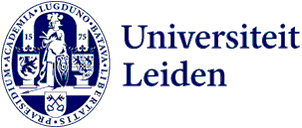
'If you think astronomy is a man's world, then it's your job to make a change'
During her master's thesis, Nashanty Brunken (24) worked in a team with five other women. With this female team, they discovered the largest molecule so far identified in a disc. 'I have learned so much and because we are all women, it is incredibly empowering. It's very cool to see how far we've come with this team.'
As a 15-year-old girl, Nashanty already knew that she wanted to study astronomy in Leiden. ‘I always found astronomy super fascinating. When I was eighteen, I moved here from Curaçao because Leiden has one of the best programmes in astronomy in Europe.’ Her parents fully support her choice. ‘They told me to follow my heart. From other people I did get some raised eyebrows and sceptical remarks. I also got the occasional question about whether it wasn't mainly a male study.’
It turns out that the study is not as male-dominated as expected. The male-female ratio in the first year of Astronomy is about 50-50, says Nashanty. ‘ If you think it is a man's world, then it is your job to change that. That way we can say we are on equal grounds. We can do it too!’

Major discovery during master's thesis
Astrochemistry is her favourite master's subject. So for her master's thesis, Nashanty wants to do research in this field. ‘Of all the subjects, it seemed like the most fun. And I really wanted Ewine as my thesis supervisor.’
During the research, the team discoveres the largest molecule ever identified in a disc. This discovery is big news and leads to an academic article and a press release. ‘I still can't believe it! To make such a big discovery during the research of your master's thesis and to be published in a scientific journal is very special. But I didn't do it alone. It really was a team effort, together with my supervisors and the other two writers.’
Working with a female power team
Whether working in a women's team is very different from working in a male team, Nashanty finds it hard to say. ‘The cooperation is really very professional and I learned a lot. It really was a dream team and a very pleasant experience. It's really nice to realise that we are all women and we achieved this together. It shows that as women we can do anything.’
Nashanty is currently specialising in science communication. ‘What I will do next is a question I have yet to answer for myself. Maybe something in science communication or who knows, I might even do a PhD. As long as it is within Astronomy.'
Text: Inge van Dijck
